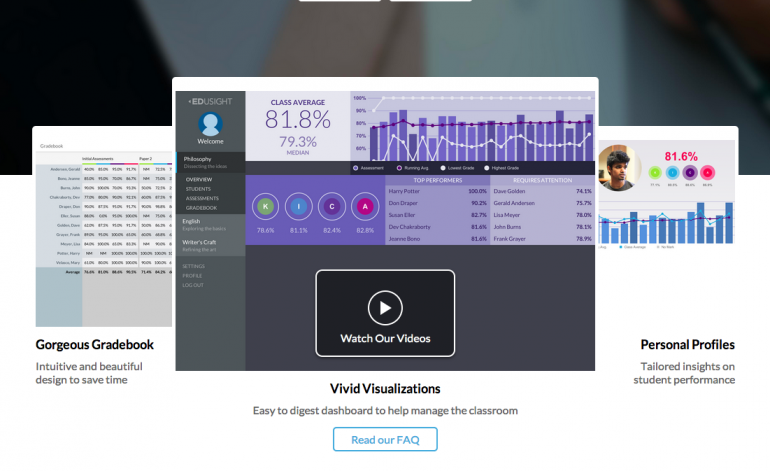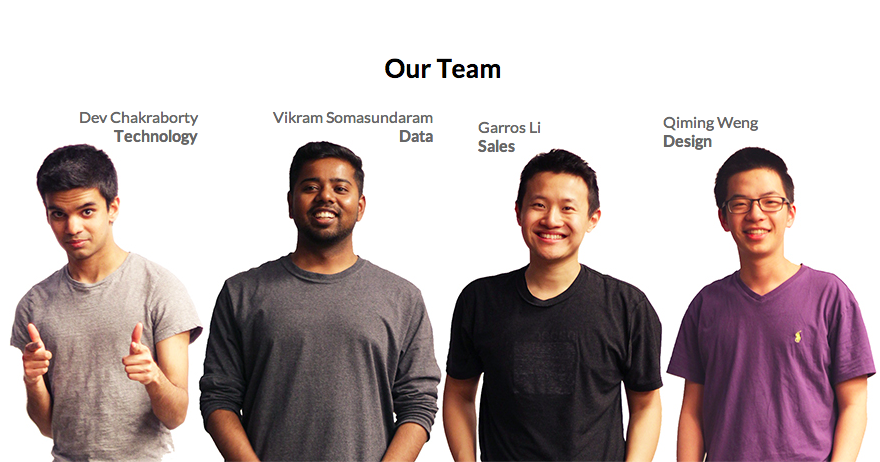Toronto edtech startup Edusight is intent on helping teachers make actionable decisions, better addressing their students’ performance and challenges. Moreover, the cofounders say they won’t be yet another startup in the space headed to an increasingly crowded graveyard.
Cofounders Vikram Somasundaram, Garros Li, Qiming Weng and Dev Chakrabortyare are sitting confident anyways, especially after Edusight announced today that it was accepted into the Silicon Valley-based Imagine K12 accelerator, led by former Y Combinator partner Geoff Ralston.
“We’re pretty confident as a team, we’re able to listen to what teachers need and quick and effectively translate that to something that’s usable. We won’t be a startup that fizzles out easily,” Somasundaram told BetaKit. “It’s a challenge, but what gives us confidence is our ability to execute and how quickly and fast we actually accomplish milestones.”
Along those lines, the startup has achieved some encouraging feats thus far. They began building the product in February and 600 teachers were using it by April, May and June on a trial basis.
Edusight has reached a partnership with Pearson, which gives the team access to about 13 million students across North America, and they also have a pilot with New York City’s Department of Education with one school. Moreover, the team currently has pilots with two private schools in Toronto. A trip to Silicon Valley for Imagine K12 is next.
Their tool collects data points on students, like grades, comments and “anecdotal evidence” around how they’re performing. The platform then creates a holistic view of the student, so teachers and parents can get insights. “Today there are over three billion grades entered by teachers across north America per year, but nothing happens with that data,” said Somasundaram. “We’re helping teachers to get more out of it, giving them alerts when students are struggling with specific concepts and recommendations on content to help each student address their needs.”
It’s a freemium-based model and the cofounders are still working on building out some of the premium features. For now they see their price for some of those features at $40 per teacher per year, meaning it’ll be more expensive than some of the older tools used in classrooms, but less expensive than learning management systems, like Desire2Learn.
But a tool like this seems to depend on teachers that really do care about the analytical side of how their students are doing, or perhaps more enthusiastic teachers willing to embrace new technologies. I can only imagine my kindergarten teacher would look at me funny if I told her she needed to start using this tool.
“For the teachers that may be a little more apathetic, our value proposition is that it will save them time. It’s so much simpler to use and you can use it anywhere on any type of device,” said Somasundaram.



